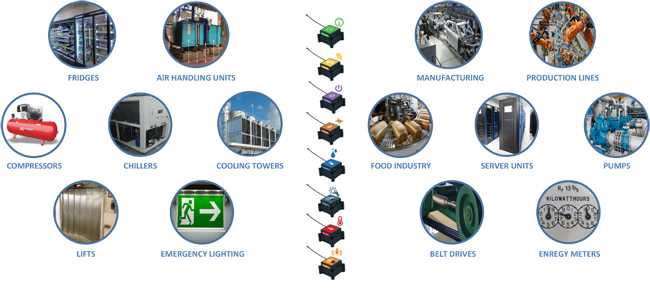 How would you feel if at a routine health check your doctor informed you that it was time to have your hip replaced - even though you weren't displaying any symptoms!
How would you feel if at a routine health check your doctor informed you that it was time to have your hip replaced - even though you weren't displaying any symptoms! His reason? Statistically, on average, hips fail by the time one reaches the age of 65. Knowing this your doctor schedules the surgery as a preventative measure to stop you possibly having hip problems in the future. A pointless procedure!
Yet this is exactly what maintenance engineers do with the equipment in their care under Planned Preventive Maintenance (PPM). The medical analogy brings home the absurdity of intervention based purely on statistical evidence!
So how has this come about and is there an alternative?
For over 100 years during the age of steam and the industrial revolution, engineers designed machinery with margins of safety reflecting concerns over equipment failure. 'Built to last' was the watchword of the time so maintenance was mainly topping up grease cups and oil levels. But as commercial pressures built, design safety margins were reduced and equipment became more complex and as a consequence maintenance grew in importance.
By the 1950s the engineering fraternity developed the concept of PPM in an attempt to improve equipment reliability by replacing 'wear parts' prior to failure. In those early days PPM was more or less guesswork as statistical analysis of failure rates was still in its infancy.
By the 1960s the aircraft industry had realised that PPM was too simplistic an approach and Reliability Centred Maintenance (RCM) was developed. RCM is a logical method of identifying the appropriate maintenance technique for a particular machine or system.
Since then we have had a variety of maintenance approaches. Most recently, as part of an ISO standard (ISO 55000), the selection of appropriate maintenance techniques is seen as part of a more complex process of aligning all aspects of physical asset management with the business needs.
One important maintenance technique involves monitoring one or more health parameters for a particular piece of machinery - using the resultant information to predict when that piece of machinery may fail - preferably with sufficient lead-time to allow for corrective intervention.
The medical analogy for this would be to measure someone's blood pressure and only intervene with medication to reduce it when an unsafe limit has been reached. In engineering, techniques usually associated with this approach are Condition Monitoring and Predictive Maintenance. During Condition Monitoring's early years problems included high cost and low flexibility as sensors and their associated analytical devices were expensive and could only be connected using fixed cables.

More recently, technological advances in radio connectivity and sensor miniaturisation together with the Internet of Things (IoT) have resulted in the availability of a wide range of monitoring devices, which can be quickly installed and instantly connected. This offers real-time visibility to see what needs doing and when it needs doing. This approach is 'Informed Maintenance' in other words using collected information to guide your actions.
Data analysis can, but rarely does, reduce the amount of guesswork involved in PPM and maintenance frequency safety margins will always lead to the premature replacement of parts.
Informed Maintenance on the other hand, while not necessarily appropriate for all situations, has increased in popularity due to sensor cost reductions and better connectivity. This is leading to improvements in plant reliability and reductions in maintenance and asset lifecycle costs.

Informed maintenance is the best option for companies that want to succeed long-term, and therefore understand that they need a long-term plan for proper equipment upkeep.
So let's not cause our 'mechanical' patients any more stress with talk of premature replacement of parts. Their job is hard enough without the pressure of constant meddling.



